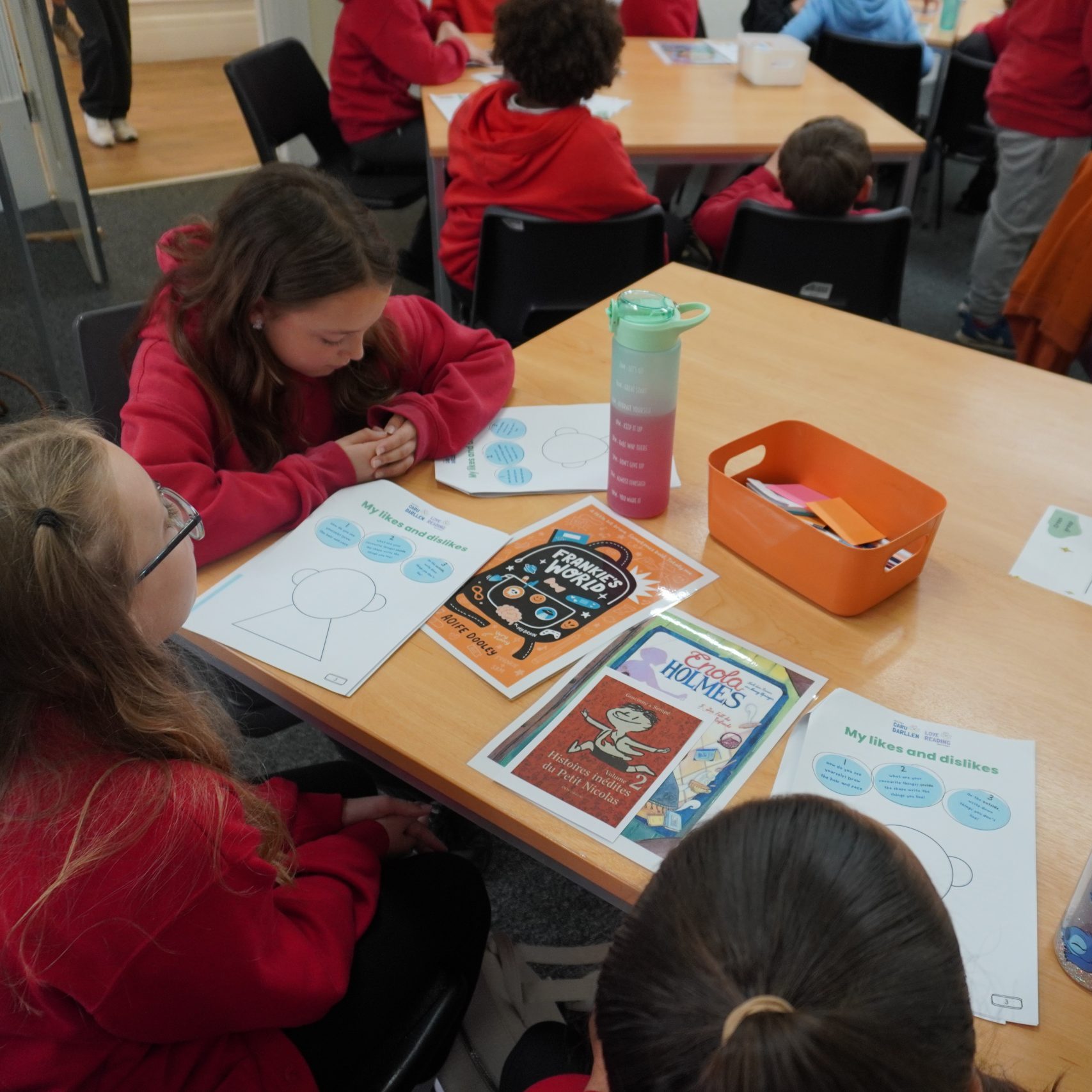by Alex Nita
I’d like you all to pause for a minute and look around you – what can you see? I’m sat in my office and can see my notebook, a mini library of children’s books, an assortment of posters on the notice board, and a wealth of feedback postcards written by Love Reading mentees. What about you? Are you looking at Instagram reels on your phone? Do you have a newspaper or magazine to hand?… or maybe you’re a teacher sat in your classroom marking books or staring at the children’s work on the walls.
If your answer is yes to any of the above, the good news is that you have successfully looked at the world through a reading lens, simply by noticing all the reading materials that surround you and enrich your everyday life! As educators we are firm believers in the power of reading and we know that reading is essential to children’s development, wellbeing and success in life1,2,3,4.
But how can we, as educators, empower children to experience and explore the power of reading for themselves? How can we boost children’s motivation to choose to read? Our answer to this question lies in the reading lens. For the past two years, Love Reading has developed and refined a unique approach to children’s reading motivation, by encouraging learners to make connections with reading in their everyday life, through their interests and aspirations. The scope of the project has been to ‘hook’ learners into reading by opening their eyes to the ways in which reading already enriches their lives, thus transforming what it means to be a reader.
The Love Reading mentoring scheme places inspiring student mentors to work with small groups of reluctant readers aged 9-11 years old and has been particularly effective in boosting learners’ reading motivation through sharing and developing an interest for reading together5. The project’s approach means even the most reluctant reader can find both pleasure and reward in the reading of their choice (whether that is music lyrics, game instructions or even computer coding).

More recently, Love Reading harnessed the evidence from the mentoring project to create a professional learning programme (including adaptable and practical resources available in both Welsh and English) to support primary teaching practitioners to see the world through a reading lens in their own classrooms. The resources explore a wealth of subjects, linked to all areas of learning and experience within the Curriculum for Wales, to showcase how the reading lens can make any subject interesting and enjoyable for all learners.
The resources offer a practical approach to learners to help them read and make sense of the world around them. Whilst some readers like nothing better than to settle into a cosy chair with a big book, others prefer to read eBooks or listen to audiobooks. There are also those that don’t want to engage with books at all…looking up a new recipe to try is as good a reading opportunity as any, in my book – if you’ll pardon the pun.
As educators in Wales, it is our undeniable duty to support children to explore the many ways in which they can become a reader, so that even the most reluctant learners can feel that reading belongs to them.
References:
- National Literacy Trust. Reading for mental wellbeing: Children and young people’s voices in 2023. https://literacytrust.org.uk/research-services/research-reports/reading-for-mental-wellbeing-in-2023/
- Book Trust. The Benefits of reading. https://www.booktrust.org.uk/globalassets/resources/research/benefits-of-reading—booktrust-2023.pdf
- The Open University. Reading and Writing for Pleasure: A Framework for Practice https://cdn.ourfp.org/wp-content/uploads/20231201185032/Reading-and-Writing-for-Pleasure_FRAMEWORK-DIGITAL-FINAL-30.11.23.pdf
- Science | EEF (educationendowmentfoundation.org.uk)
- Ondata Research. Love Reading Mentoring Pilot Year Evaluation Report
